When Hong Sang-soo made his debut feature, 1996’s The Day a Pig Fell Into the Well, the South Korean cinema had not yet developed into the internationally acknowledged movement it is today. With accomplished debuts from Lee Chang-dong and Bong Joon-ho coming soon after, Hong would seem to ride in on a wave of filmmaking that established a new independent national cinema. Indeed, The Day a Pig Fell Into the Well now seems unusual, in the context of Hong’s filmography, due to its industry-scaled production, which may have necessitated (or enabled) a rather dark social vision not commonly seen in his later films. The director took a sharp turn towards a sort of minimalism with subsequent works, separating himself aesthetically (and, so it seems, economically) from the other SK cinema of the 21st century, and in the process styling himself as one of the most original directors of his generation.
Both 1998’s The Power of Kangwon Province and 2000’s Virgin Stripped Bare by Her Bachelors find Hong condensing the themes and attitudes of his debut feature into more precise, but also vaguely unnatural forms. The Power of Kangwon Province simplifies narrative tendencies from The Day a Pig Fell Into the Well while Virgin Stripped Bare by Her Bachelors introduces the repeating, doubled-narrative structure which has since almost become Hong’s trademark, to be seen again in various iterations throughout his career. But the substance of Hong’s vision seems to have changed only incrementally over the years; it is just that in his most developed style, the immoral and unruly subconscious of Korean society would tend to be revealed to us as if by accident, through the uncontainable messiness of the behavior Hong chooses to depict, and through cracks in seemingly sound, but actually unreliable, narrative structures.
The most highly regarded of Hong’s early films, 2002’s On the Occasion of Remembering the Turning Gate, can probably be considered the first film to clearly display the many facets of Hong’s sensibility: attuned to sexual confusion, possessiveness, and even depravity; fascinated by the intersection of the random/chaotic and the mundane; hostile to conventional story resolutions yet reliant on strategic deployment of narrative devices. Oddly enough, though, Hong’s international breakthrough didn’t come until 2006’s Woman Is the Future of Man, either because of the ingenuity of an English title seemingly derived from Novalis’s Fragments, or because the film appears to have been marketed as an alternative to conventional Korean romantic dramas. A transitional film, and one that’s experimental to its very core, Woman Is the Future of Man earned Hong the reputation of a pessimist — one that’s seemed to become less justified with each passing year. (In fact, despite a pessimistic outlook on romance, Woman Is the Future of Man is also the first film in which Hong’s weird sense of humor appears — and the film is, at times, downright funny.) There seems to be a shift in tone, a subtle opening-up of emotion which one can trace over the next three films: 2005’s A Tale of Cinema (notable to formalists for introducing the zoom to Hong’s aesthetic), 2008’s Woman on the Beach, and 2009’s Night and Day.
Of all of these, Night and Day, feels like the true culmination — and is to-date the director’s most complete and successful film. Shot in Paris, with money from the Musée des Beaux-Arts, it evokes the works of the French New Wave, particularly those of Éric Rohmer or Jean Eustache, in its liberal use of natural light, its café and park locations, its literary structure, and its detailed elaboration of a story about moral hazards. Around this time, Hong also started cutting back on pre-production elements, resulting in his current filmmaking method of no screenplay or treatment, starting the process with only actors, locations, and a rough idea of the film. (He would write the script for each day’s shoot the morning of, and the actors would learn it upon arriving on set.) This method, which reduced the pre-production component of the filmmaking process to a minimum, led to a fruitful 2010, during which Hong shot two feature-length films, Hahaha and Oki’s Movie (though the latter wasn’t released Stateside until 2012) — and this is not the last time that the director would accomplish such a feat. Prolificacy has distinguished Hong from his peers in the current phase of his career; in this decade alone, he’s already made 13 features and one short. This broad canvas has afforded Hong the space to further investigate his form, in 2012’s major and enigmatic The Day He Arrives; 2014*’s mostly English-language Hill of Freedom; and 2016*’s Yourself and Yours, which attempts a happy ending.
Also of note is Hong’s recent and continuing collaboration with actress Kim Min-hee (whom he’s also in a romantic relationship with), which began with 2016’s Right Now, Wrong Then, a film that conveniently serves as an appropriate marker for the beginning of the current phase of Hong’s career. To date, Hong has made five films with Kim, including his two most recent ones, Grass and Hotel by the River. The effects of this collaboration on Hong’s art remain to be analyzed; concurrent with the continuing addition of new aesthetic ideas (just about every Hong film experiments with a new formal gesture) is a trend toward resolving stories into a contented peace, a restful oasis apart from the drama proper. One has grown so used to Hong’s unsettled endings that this development is a real curveball — and for a director so associated with repetition, whose distinctiveness has at times obscured adventurousness, it is remarkable that one still can enjoy the pleasure of not knowing what he’s going to do next.
For the next two weeks, our writers will review each of the feature films (and the two shorts) that Hong Sang-soo has made to date, starting in 1996 and ending with his two 2018* films. That makes for a total of 25 reviews, which have been divided up into four sections, each representing a very loosely defined phase in the filmmaker’s career: Pt. 1: Young Man and Girl in Spring (1996-2006), Pt. 2: Notes for a Romantic Encyclopaedia (2008-2011), Pt. 3: Trips Without Lovers (2012-2014), and Pt. 4: Roads for Traveling Souls (2016-2018). Look for new reviews from October 18 — October 24.
Pt. 1: Young Man and Girl in Spring (1996 – 2006): The Day a Pig Fell Into the Well (1996), The Power of Kangwon Province (1998), Virgin Stripped Bare by Her Bachelors (2000), On the Occasion of Remembering the Turning Gate (2002), Tale of Cinema (2005), Woman Is the Future of Man (2006)
Pt. 2: Notes for a Romantic Encyclopaedia (2008 – 2011): Woman on the Beach (2008), Night and Day (2009), Like You Know It All (2009), Lost in the Mountains (2009), Hahaha (2010), List (2011)
Pt. 3: Trips Without Lovers (2012 – 2014): Oki’s Movie (2012), The Day He Arrives (2012), In Another Country (2012), Nobody’s Daughter Haewon (2013), Our Sunhi (2013), Hill of Freedom (2014*)
Pt. 4: Roads for Traveling Souls (2016 – 2019): Right Now, Wrong Then (2016), Yourself and Yours (2016*), On the Beach at Night Alone (2017), Claire’s Camera (2018), The Day After (2018), Grass (2019), Hotel by the River (2019)
* Pending release in the U.S.



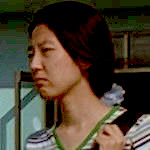
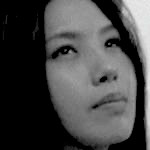
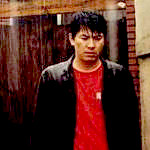


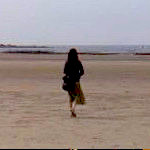

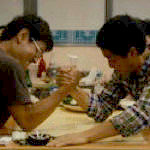



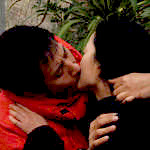
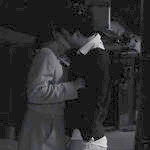
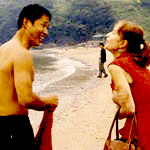





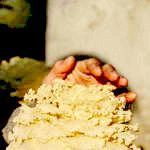
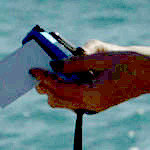



Comments are closed.